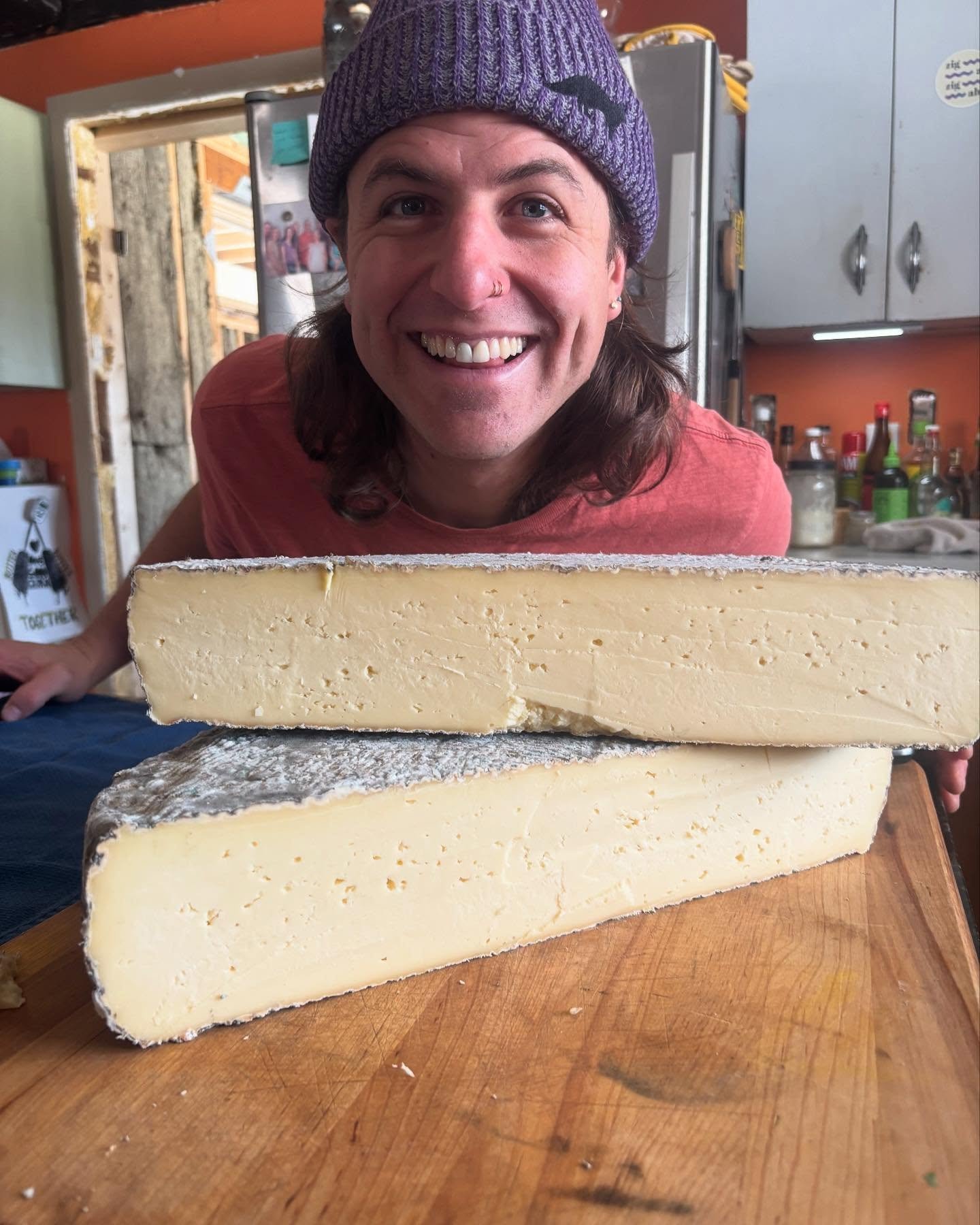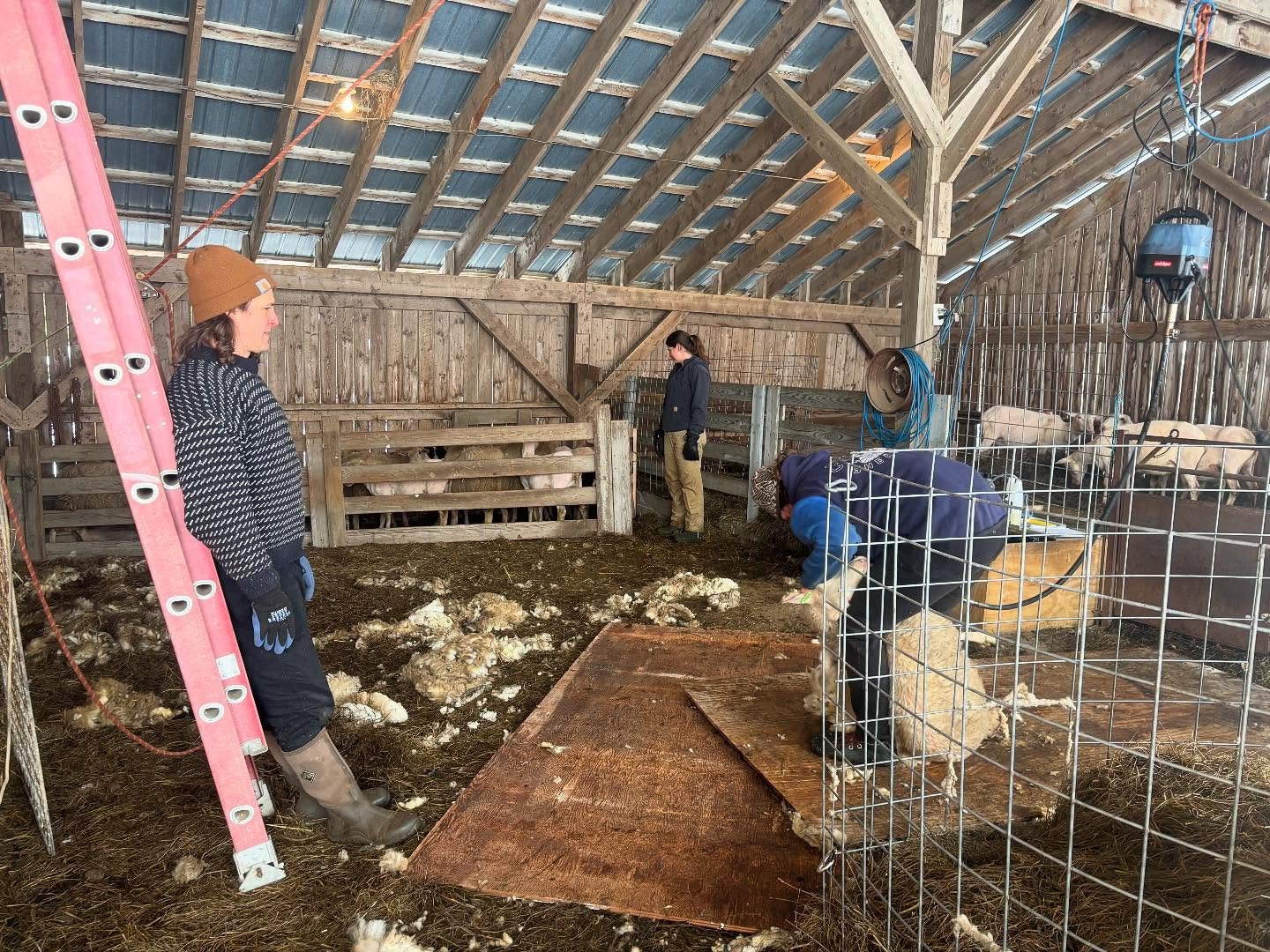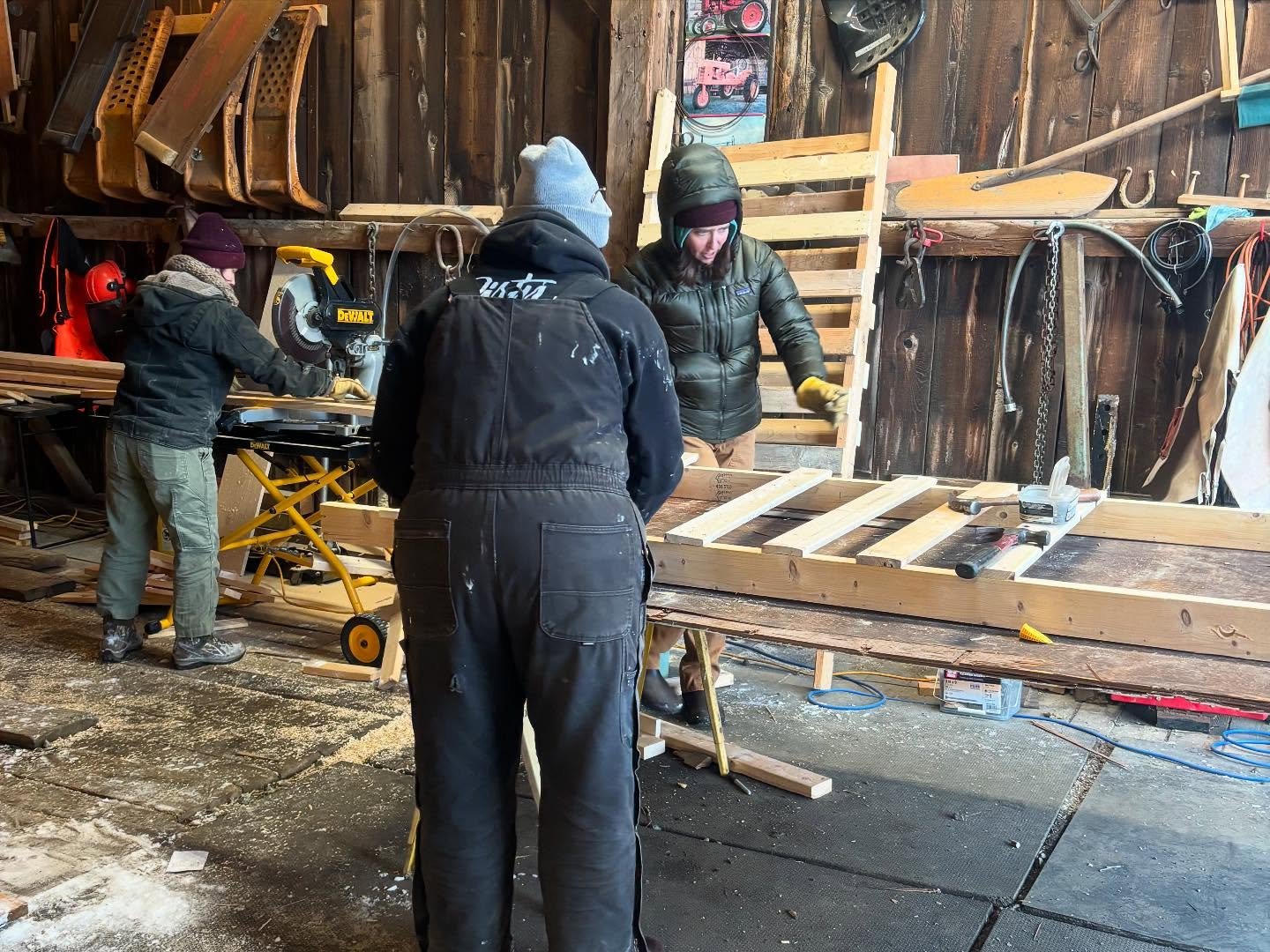FARMING FOR THE FUTURE
We strive to farm with nature.
We use managed intensive grazing for so many reasons. This style of grazing is modeled off of “mob grazing” or the way that grazing animals move across the landscape in nature. They don’t stay in one place long and they tend not to return to the same place for awhile. They move in concert with the growth of the perennial plants they eat.
Rotational grazing was made easier to manage with the invention of lightweight, temporary electric fences. We move the dairy flock after every milking and all other groups of sheep every 3-4 days. Grazing this way allows the grass to grow back between grazings, promoting a healthy sward, building soil, and storing carbon. As the flock eats the plants, the roots die back (pasture plants maintain about the same mass of roots below ground as there are leaves and stalks above ground). When the roots die back, their organic matter breaks down in the soil and stores carbon. This is good for the soil, good for carbon storage and climate change mitigation, and good for the sheep who get to eat really good quality pasture.
We are in the process of exploring organic certification for our farm. In general, we align with the organic standards. We also believe in using medicine to save the lives of animals in danger, something that the organic standard makes challenging. We farm mostly according to the organic standard and we’ll update you, our customers, when and if we deviate from that standard.
We believe in local, small-scale food systems and we work to promote community-scale agriculture. We’re grateful to be a part of an incredible agricultural community both here in Corinth and statewide in Vermont.
FARMING IN AN ALTERED CLIMATE
We believe in producing highly nutritious proteins in and near the communities that consume them. This way, we mitigate the extensive trucking and transport that most of the foods we consume in our modern society undergo. That transport is expensive from an ecological and climate perspective and we believe that we can do better.
We farm with an eye towards an increasingly unstable future. A future with more weather extremes, more political and social instability, and more ecological collapse. We seek to build diversity in every sense because we believe that diversity is resilience.
We also believe that the most powerful tool of resilience we have is community and human relationships. We invest time and energy into building relationships in community, being good neighbors, practicing mutual aid, and supporting one another.
We have chosen to be food producers in our community because we see it as such a vital role. We’re honored that our community trusts us to produce food for them. And we work to earn that trust in everything we do.
FARMING FOR CHEESE
The earliest evidence of cheesemaking dates to 8000 BCE. It predates pasteurization by a long shot. We will make raw milk and pasteurized cheeses at Shepherd Moon Farm but our greatest interest is in the magical craft of raw milk cheeses. These cheeses take one of the most perfect foods in the universe and seek to preserve it’s essential goodness, amplify it’s best qualities, and transform it’s essence into something truly sublime.
For thousands of years, milk was fermented solely using the enzymes found naturally in the digestive systems of young animals (rennet) and cultured exclusively with what was already in the milk or entered it from the environment. It’s easy to forget this long history in modernity. But it’s vitally important to remember that people have been working for thousands of years to develop safe and delicious ways to preserve milk and enjoy it with one another as cheese.




